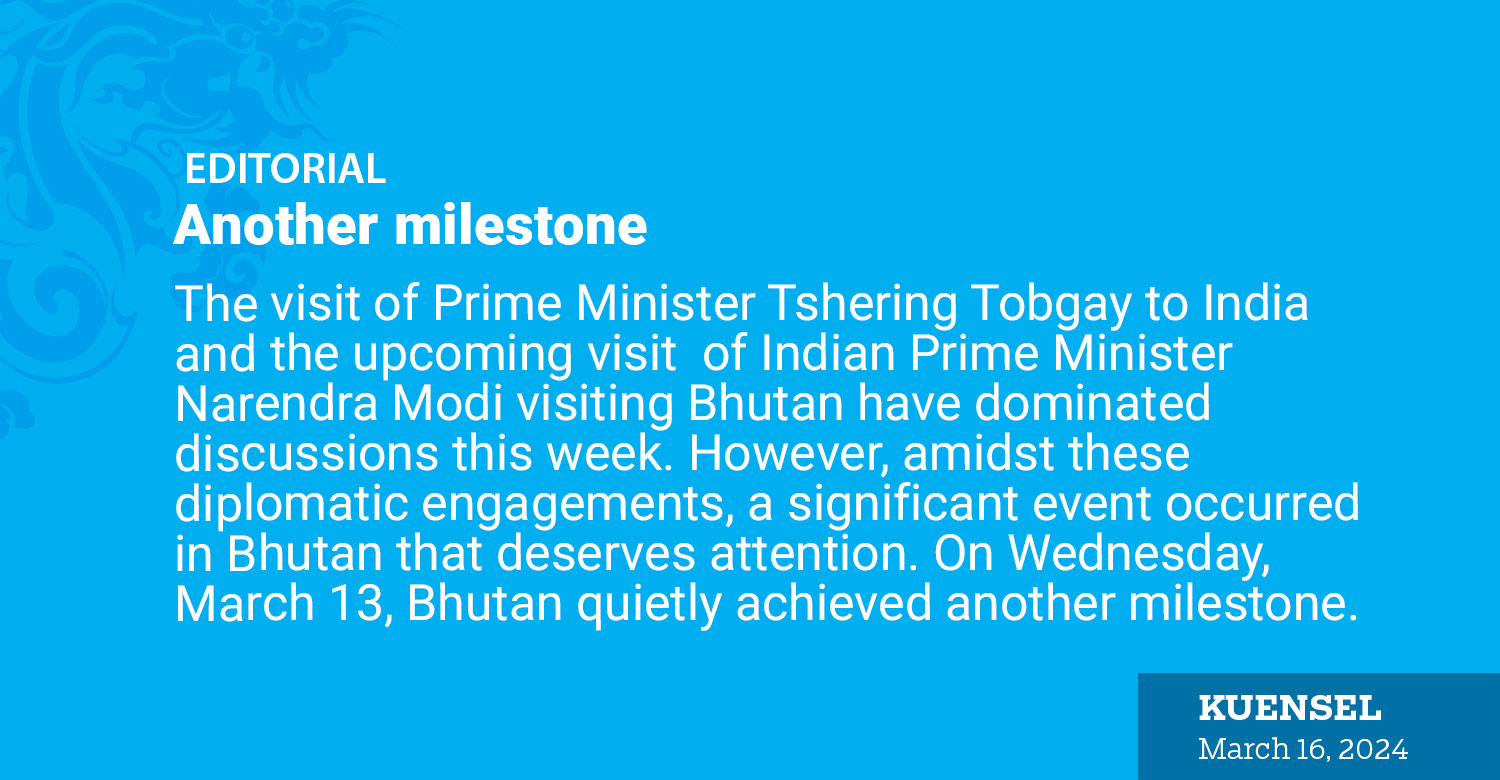The visit of Prime Minister Tshering Tobgay to India and the upcoming visit of Indian Prime Minister Narendra Modi visiting Bhutan have dominated discussions this week. However, amidst these diplomatic engagements, a significant event occurred in Bhutan that deserves attention. On Wednesday, March 13, Bhutan quietly achieved another milestone.
Bhutan ratified the Convention on the Rights of Persons with Disabilities (CRPD), becoming the 191st state party to the convention. The original Instruments of the Ratification, which the National Assembly and National Council ratified in 2023, were formally submitted to the office of Legal Affairs of the United Nations in New York.
This marks a crucial stride in Bhutan’s developmental journey. By endorsing this convention, we commit to safeguarding the rights and dignity of persons with disabilities. While the technicalities may escape many, the significance for those living with disabilities cannot be overstated. It entails ensuring equal opportunities, accessibility, and non-discrimination, thereby fostering their full inclusion in society.
The CRPD is an international human rights treaty aimed at promoting, protecting, and ensuring the full and equal enjoyment of all human rights and fundamental freedoms by all disabled persons. By ratifying the CRPD, Bhutan joins other signatories in enacting laws and policies that uphold these principles, thereby nurturing a more inclusive and equitable society.
While it may not bring a paradigm shift in disability policies immediately, it is a progressive step towards recognising and respecting the inherent worth and capabilities of every individual, regardless of disability while reinforcing commitment in advancing disability rights. In short, we have committed for inclusivity.
Before this ratification, approximately 15,500 persons with disabilities (PWDs) accounted for two percent of Bhutan’s total population in 2023. PWDs include individuals with long-term physical, mental, intellectual, or sensory impairments that, when combined with various barriers, may hinder their full participation in society.
By ratifying the convention, we are pledging to establish legal frameworks to protect and promote the rights of PWDs, demonstrate our commitment to international human rights standards, foster inclusivity by promoting equal opportunities, accessibility, and non-discrimination. Then there are other commitments like ensuring full participation of PWDs, incorporating disabilities in all aspects of life, including education, employment, and policies leading to more sustainable and inclusive development outcomes.
Those familiar with the challenges faced by PWDs are embracing this development with enthusiasm, perhaps more so than the Prime Minister’s visit. Becoming a signatory signifies the government’s commitment to inclusivity. Despite a national policy, many associated with PWDs feel that these policies often fail to translate into actionable initiatives. For instance, the absence of dedicated parking spaces for PWDs in the capital city underscores the lack of accessibility.
Without accountability, forget fighting rights, basic infrastructure like ramps at schools, parking, elevators are overlooked in our development plans. By becoming a signatory, the government will be held accountable, and commitments will be monitored and evaluated. This will greatly benefit the growing population of PWDs in Bhutan.
This progressive understanding of disability and the ongoing preparation of a follow-up action plan are encouraging steps. Bhutan’s recognition of people living with disabilities sets a positive example, emphasizing the nation’s commitment to inclusivity and human rights.


